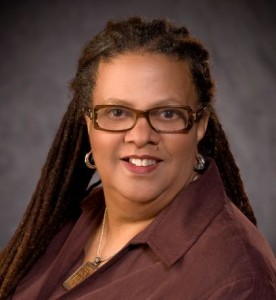By Matt Sinclair ‘90
People may have different opinions on what size a city government should be, but everyone wants things to run smoothly. And when it comes to environmental standards for Boston’s Massport, that’s just what Jacquelyn Wilkins ’77 ensures.

Jacquelyn Wilkins '77
As sustainability program manager for Massachusetts Port Authority — better known as Massport — she ensures that programs throughout the quasi-government authority meet and maintain certain environmental standards – local, federal, and sometimes international. She leads the effort to keep Massport’s environmental initiatives above the national average.
Massport operates three airports, including Logan International, as well as several seaport and maritime facilities. By itself, Logan handles more than 25 million passengers annually, so the pressures on all of Massport’s environmental programs are intense.
In 2009, Massport adopted new design guidelines that require capital projects to meet expanded sustainable design standards. A new or major rehab of a 20,000-square-foot building or larger, for instance, must be LEED certified. That certification requires that a third party verify that the building was designed and constructed using strategies that improve performance in energy savings, CO2 emissions reduction, and stewardship of resources. All other capital projects are subject to Massport’s own sustainable design guidelines.
“For every project we consider various aspects, such as recycled content of materials used and energy efficiency,” Wilkins says. “We also consider where things are manufactured and purchased. Can we buy locally? Not all guidelines apply to all projects, but for each project, we go through an exercise to determine those that are applicable and implement as many as possible.”
Wilkins works closely with engineers and architects to ensure that environmental standards are factored into every project. As if her job wasn’t challenging by its very nature, she took over the sustainability program in the midst of the nation’s worst economic situation in generations.
“Implementing the sustainability guidelines at a time when money is tight and people are overworked, takes a lot of relationship building,” she says. “I totally get it. I too am overworked. But this is about changing the paradigm of how to design projects and considering more completely the impact of the choices we make.”
What Wilkins enjoys most is pushing the envelope and coming up with innovative ways that can create significant positive change. One special area of interest is alternative fuel vehicles and sustainable fuel. Outside of work, she serves in leadership roles on several nonprofits focused on sustainable mobility.
This past summer, Massport received the first plug-in hybrid Prius (a car that will be on the market in 2012) that Toyota loaned in the Northeast.
“My intent was to get as many people to drive it as possible,” Wilkins says. “That particular vehicle plugs into a standard 110 outlet, but there are other electric vehicles that will need a special charging infrastructure. I’m looking for ways to prepare our public garages for the pending shift in the automotive fleet to include EVs.
In a sense, her interest in sustainability helped lead her back to Lafayette. An old college friend, Frank Campbell ‘74, encouraged her to get involved, so she volunteered at college fairs and other Boston Chapter alumni events. Later, the College established the Council of Lafayette Women. As an alumna from the 1970s, Wilkins attended a much different school than students know today. There were no sororities or women’s sports teams.
“A lot of things my male counterparts associate with their experience at Lafayette, I didn’t have,” she says. “It seems to me that Lafayette wisely realized that there are a number of women alumnae from the last few decades [and] established the council to create a community to help keep us connected to the school.”
Wilkins has long been at the forefront of change – from her years at Lafayette to her career at Massport and her nonprofit involvement. “The big challenge is to try to get people to change their behavior,” she says. “Getting folks to think differently about how what we do today impacts the condition of the planet that we will leave our children and theirs.”
